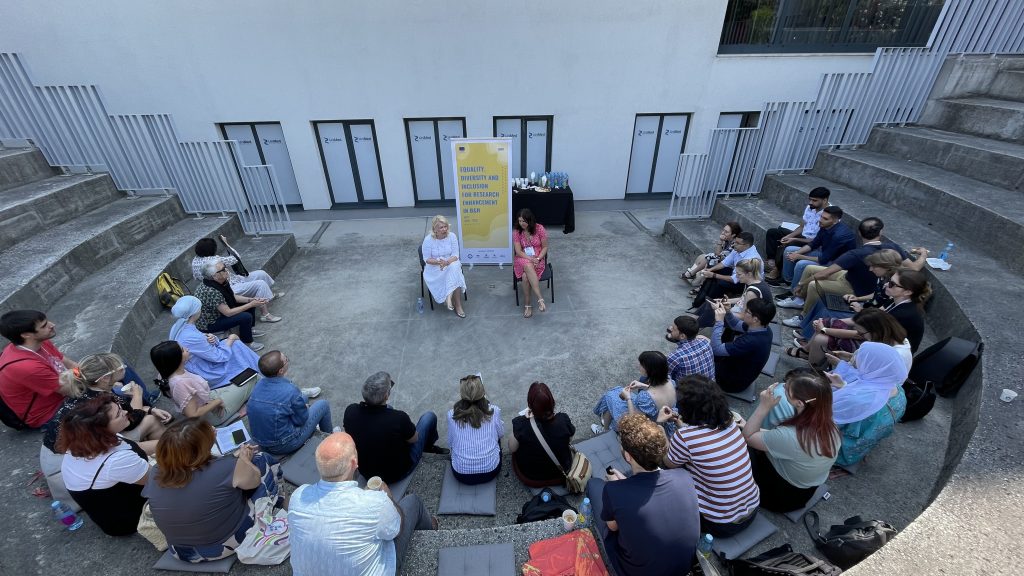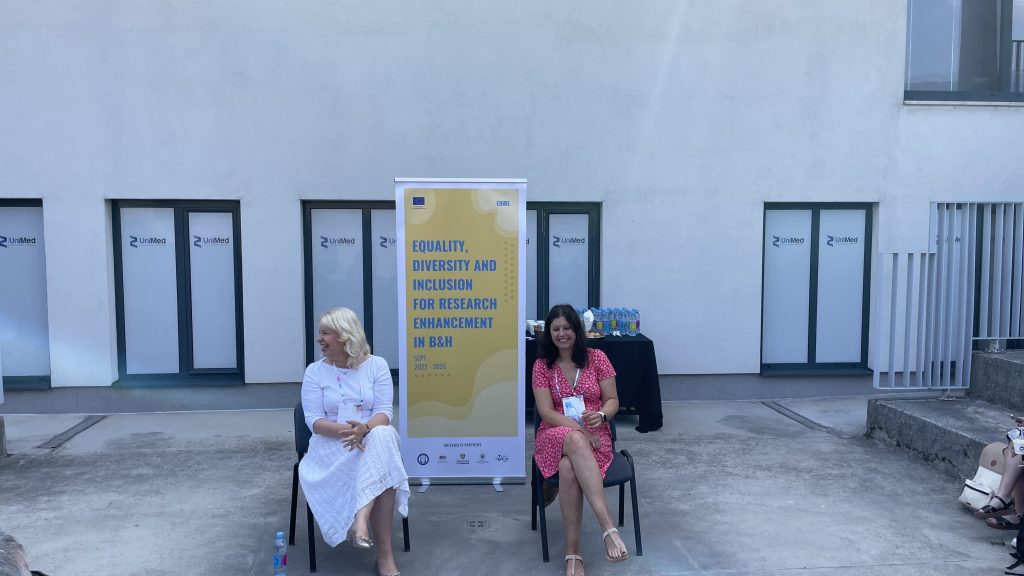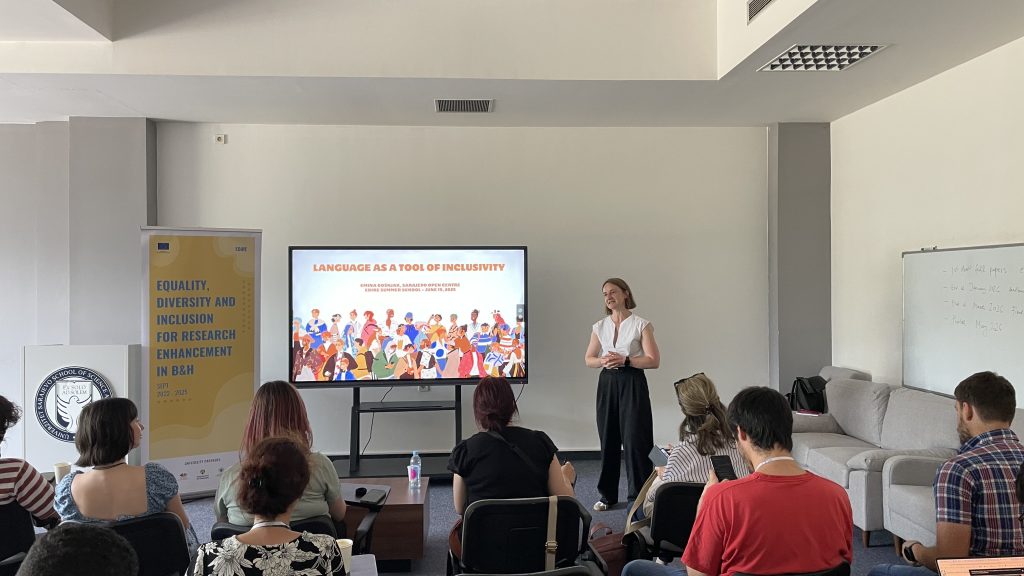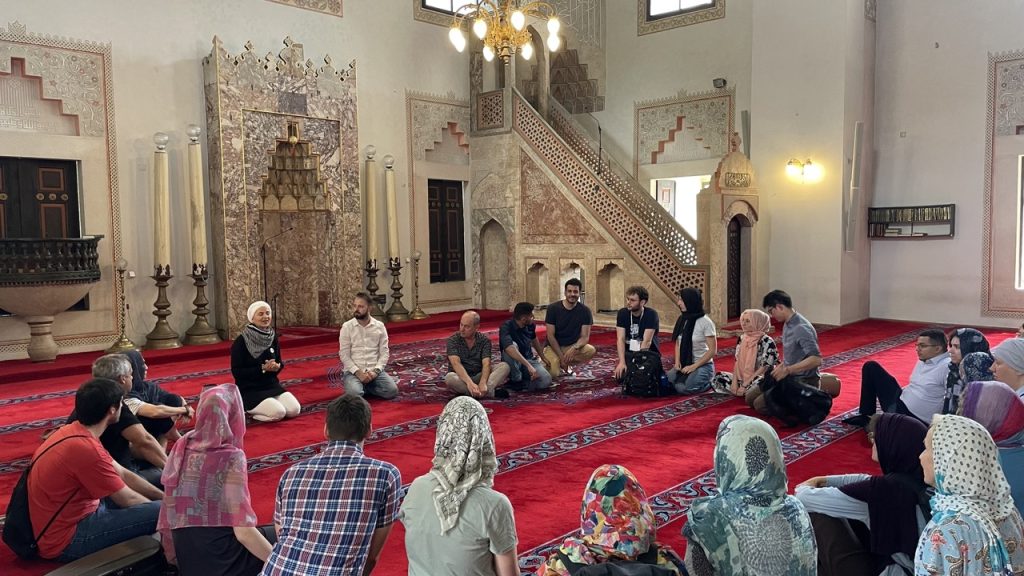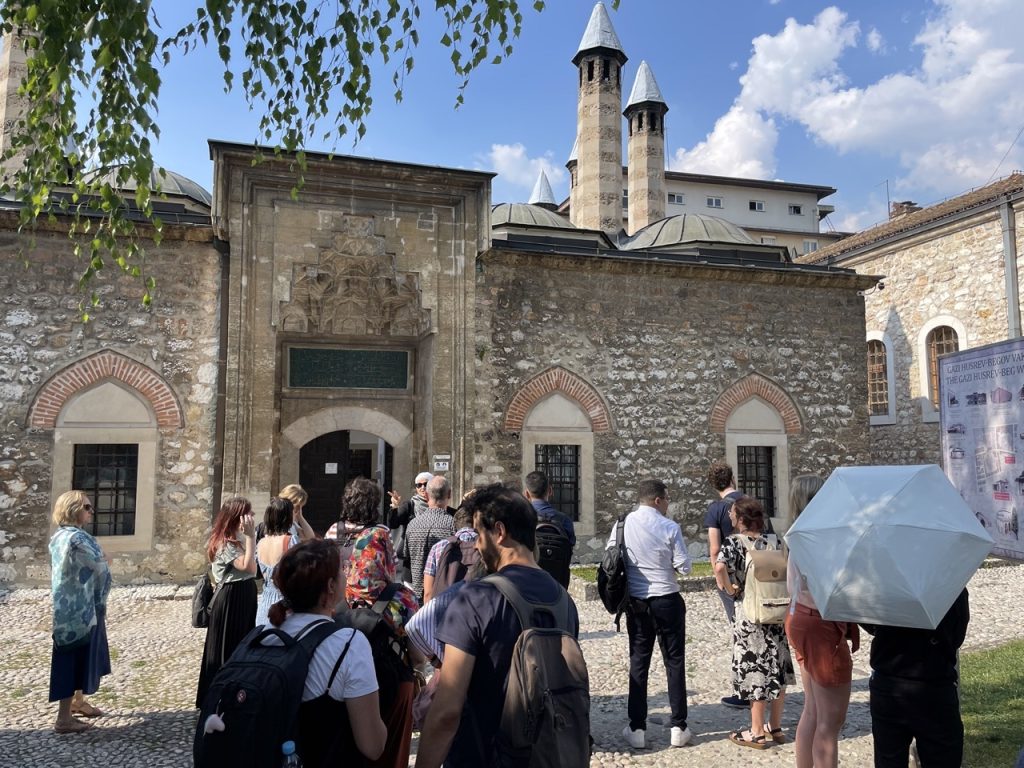PhD Morning Talk with a View: Tips & Tricks from Experience
On the third day of the EDIRE Summer School, we decided to start the morning in a refreshing and inspiring setting—overlooking the Olympic mountain Igman, in the open-air amphitheatre in front of the Sarajevo School of Science and Technology (SSST).
With a warm cup of coffee and something sweet, participants gathered for an informal yet inspiring session titled “PhD Tips & Tricks”, led by professors Lejla Pašić and Semira Galijašević.
Recognizing that no one can fully prepare us for the PhD journey, this session focused on real-life insights and personal stories from two experienced researchers who have completed the path themselves. It was a chance to learn not from textbooks, but from the lived experience of those who understand the emotional, intellectual, and practical challenges of pursuing a doctorate.
Professors Lejla and Semira shared candid reflections on their academic journeys, highlighting moments of growth and vulnerability. Special attention was given to the challenges they faced during maternity leave, navigating interpersonal dynamics with colleagues and mentors, and maintaining motivation and balance during demanding periods of research.
Above all, the session encouraged participants to reflect on their own reasons for pursuing a PhD, and to define what success means to them personally. It was a reminder that while the PhD path is often complex and unpredictable, it becomes more meaningful when aligned with one’s values, purpose, and long-term vision.
This inspiring morning set the tone for a day filled with deeper understanding, mutual support, and a stronger sense of academic community.
Language as a Tool of Inclusivity
As part of their ongoing learning journey, the EDI leaders welcomed Emina Bošnjak, Executive Director of the Sarajevo Open Centre, for an engaging session titled “Language as a Tool of Inclusivity.”
Emina began by briefly introducing the mission and work of the Sarajevo Open Centre, highlighting its long-standing commitment to advocating for the human rights of women and LGBTQI persons in Bosnia and Herzegovina. She provided insights into the Centre’s key activities, including public advocacy, legal reform initiatives, and ongoing communication with state institutions to improve the legal and social recognition of LGBTQI individuals in the country.
A particular emphasis was placed on gender-sensitive language—why it matters, how it can be used to foster more inclusive environments, and what concrete steps can be taken to integrate it into academic, institutional, and everyday communication. The session encouraged critical reflection on language as a powerful social tool and offered practical strategies for participants to use in their own research and professional contexts.
Storytelling: Stories from the Past That Still Live Today
The third day of the EDIRE Summer School concluded with a meaningful study visit to the Gazi Husrev-bey Mosque and Library, offering participants a deeper understanding of Bosnia and Herzegovina’s rich cultural and religious heritage.
The visit was led by Prof. Dr. Dževada Garić (SSST University), who also serves as Head of the Department for the Western World at the Directorate for Foreign Affairs and Diaspora of the Islamic Community in Bosnia and Herzegovina.
Participants were introduced to the fascinating history of the Gazi Husrev-bey Mosque, one of the most significant architectural and spiritual landmarks in the Balkans. They learned about the life and legacy of Gazi Husrev-bey, a key historical figure whose endowments shaped the cultural and educational landscape of Sarajevo.
Prof. Garić delivered a powerful lecture on the culture of religion in Bosnia and Herzegovina, focusing on the development of Islam in the region and the coexistence and cohesion of all monotheistic religions in the country. She emphasised Bosnia and Herzegovina as a unique example of inter-religious harmony in Europe, underscoring the values of mutual respect, understanding, and a truly multi-religious environment.
The session also included a poignant reminder that 2025 marks 30 years since the Srebrenica genocide, in which more than 8,372 men, boys, and adolescents were killed during the aggression on Bosnia and Herzegovina. Prof. Garić highlighted the importance of remembrance and justice, noting that a UN Resolution recognising the Srebrenica genocide was adopted last year.
Sarajevo is often referred to as the European Jerusalem, a powerful symbol of equality, diversity, and inclusivity.
After the mosque visit, participants explored the Gazi Husrev-bey Library, the oldest library in Bosnia and Herzegovina, whose collections exceed 10,000 manuscripts. The visit also included a guided tour of the library’s museum, which houses rare artefacts and documents that testify to centuries of learning, coexistence, and resilience.
🇪🇺This project has received funding from the European Union’s Horizon Europe program for widening participation and spreading excellence under Grant Agreement number 101060145
